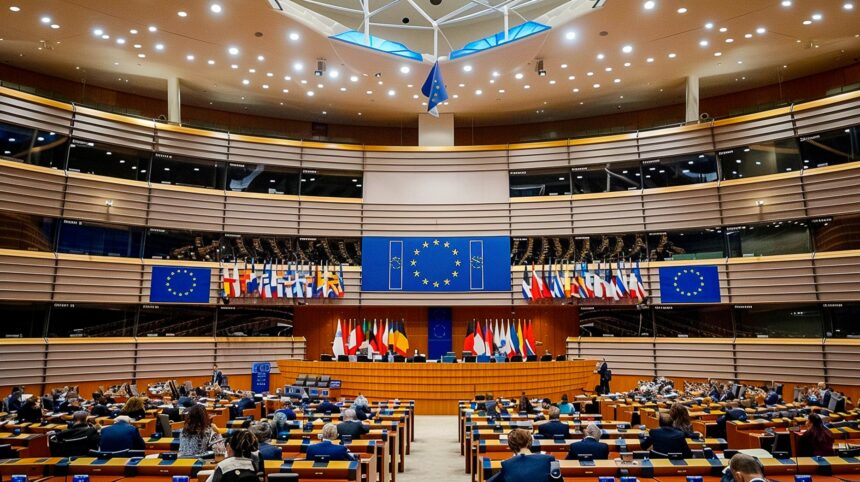In today’s fast-paced world, technology has become an indispensable tool for modern governance. For a city like Riverdale, where growth and innovation are at the forefront of its development agenda, integrating technology into governance isn’t just a luxury—it’s a necessity. From streamlining municipal operations to fostering greater citizen engagement, technology is transforming how Riverdale’s City Council operates and interacts with its residents. This article explores the multifaceted role of technology in shaping modern governance in Riverdale, highlighting its impact on efficiency, transparency, sustainability, and community empowerment.
Why Technology Matters in Governance
Technology has revolutionized nearly every aspect of our lives, and governance is no exception. In Riverdale, leveraging technology allows the City Council to address complex challenges more effectively while enhancing the quality of life for its citizens. But this isn’t about replacing human interaction with machines; it’s about using tools that amplify human potential and make governance more responsive, inclusive, and forward-thinking.
Key Benefits of Technology in Governance
- Efficiency : Automating routine tasks frees up time for officials to focus on strategic decision-making.
- Transparency : Digital platforms provide citizens with real-time access to information, fostering trust.
- Accessibility : Technology bridges gaps, ensuring services reach even the most underserved communities.
- Data-Driven Decisions : Analytics enable policymakers to make informed choices based on evidence rather than intuition.
By embracing these benefits, Riverdale’s City Council can position itself as a leader in smart governance , setting an example for other municipalities to follow.
Streamlining Municipal Operations Through Technology
One of the most visible impacts of technology in Riverdale is its ability to streamline municipal operations. Whether it’s managing public utilities, maintaining infrastructure, or processing permits, technology ensures that these essential services run smoothly and efficiently.
1. Smart Infrastructure Management
Riverdale’s aging infrastructure poses significant challenges, but technology offers innovative solutions. Sensors embedded in roads, bridges, and water systems can monitor their condition in real time, alerting maintenance teams to potential issues before they escalate.
Examples of Smart Infrastructure
- Traffic Sensors : These devices analyze traffic patterns and adjust signal timings to reduce congestion during peak hours.
- Water Leak Detection : Advanced sensors identify leaks in pipelines, conserving water and preventing costly repairs.
- Predictive Maintenance : Machine learning algorithms predict when equipment like streetlights or HVAC systems will require servicing, minimizing downtime.
These technologies not only save money but also improve the reliability of critical services, making life easier for Riverdale’s residents.
2. E-Government Services
Gone are the days when citizens had to stand in long lines at city hall to renew licenses or file complaints. With e-government platforms, Riverdale’s residents can now access a wide range of services online, from paying utility bills to applying for permits.
Benefits of E-Government
- Convenience : Citizens can complete transactions anytime, anywhere, without leaving home.
- Cost Savings : Reducing paper-based processes lowers administrative costs for the city.
- Faster Turnaround : Automated workflows speed up approvals and reduce bureaucratic delays.
For instance, Riverdale recently launched a mobile app that lets users report potholes or graffiti directly to the relevant department. Within minutes, the issue is logged, assigned, and resolved—a testament to how technology enhances responsiveness.
Enhancing Transparency and Accountability
Transparency is the cornerstone of good governance, and technology plays a pivotal role in making Riverdale’s City Council more open and accountable. By providing citizens with easy access to data and decision-making processes, technology fosters trust and encourages civic participation.
1. Open Data Portals
Riverdale’s open data portal gives residents unprecedented access to government information, including budgets, crime statistics, and environmental metrics. This wealth of data empowers citizens to hold officials accountable and participate meaningfully in discussions about the city’s future.
Impact of Open Data
- Informed Advocacy : Activists use data to advocate for policy changes, such as improved public transportation routes.
- Business Opportunities : Entrepreneurs leverage open data to develop apps and services that benefit the community.
- Public Trust : When citizens see how tax dollars are spent, they’re more likely to support government initiatives.
2. Real-Time Reporting Tools
Another way technology promotes transparency is through real-time reporting tools. For example, Riverdale’s City Council uses dashboards to display live updates on key performance indicators (KPIs) like response times for emergency services or progress toward sustainability goals. These visualizations make complex data accessible and understandable for everyone.
Empowering Citizen Engagement
Modern governance thrives on collaboration between officials and citizens, and technology provides the tools needed to facilitate this partnership. By creating digital spaces for dialogue and feedback, Riverdale’s City Council ensures that all voices are heard—not just those who can attend town hall meetings.
1. Social Media Platforms
Social media has emerged as a powerful channel for connecting with residents. Riverdale’s City Council uses platforms like Facebook, Twitter, and Instagram to share updates, solicit input, and address concerns. During crises—such as severe weather events—social media becomes a lifeline for disseminating urgent information quickly.
Engagement Strategies
- Live Q&A Sessions : Hosting virtual town halls where citizens can ask questions in real time.
- Polls and Surveys : Using social media polls to gather opinions on proposed policies.
- Crowdsourcing Ideas : Inviting residents to suggest improvements for public spaces or programs.
2. Participatory Budgeting Apps
Participatory budgeting apps allow citizens to vote on how portions of the municipal budget should be allocated. In Riverdale, residents have used these apps to prioritize projects like park renovations and library expansions, ensuring that taxpayer money reflects community priorities.
Driving Sustainability Through Innovation
Sustainability is a core pillar of Riverdale’s vision for the future, and technology is instrumental in achieving this goal. From reducing carbon emissions to conserving natural resources, innovative solutions are helping the city build a greener, more resilient environment.
1. Renewable Energy Integration
Riverdale is investing heavily in renewable energy technologies, such as solar panels and wind turbines, to power municipal buildings and reduce reliance on fossil fuels. Additionally, smart grids optimize energy distribution, ensuring minimal waste and maximum efficiency.
Smart Grid Advantages
- Demand Response : Adjusting electricity usage during peak hours to prevent blackouts.
- Energy Storage : Storing excess energy generated during sunny or windy periods for later use.
- Cost Reduction : Lowering energy bills for both the city and its residents.
2. Waste Management Innovations
Technology is also transforming Riverdale’s approach to waste management. Smart bins equipped with sensors notify sanitation crews when they’re full, optimizing collection schedules and reducing fuel consumption. Meanwhile, recycling apps educate residents on proper disposal methods, increasing recycling rates.
Improving Public Safety with Tech Solutions
Public safety is a top priority for any city, and Riverdale is harnessing technology to create safer neighborhoods. From predictive policing to emergency response systems, tech-driven solutions enhance the effectiveness of law enforcement and first responders.
1. Predictive Policing
Using historical crime data and AI algorithms, Riverdale’s police force identifies high-risk areas and allocates resources accordingly. While critics raise valid concerns about privacy and bias, proponents argue that predictive policing reduces crime rates without overburdening officers.
2. Emergency Alert Systems
During emergencies, every second counts. Riverdale’s emergency alert system sends instant notifications to residents’ phones via text, email, or app alerts. Whether it’s a fire, flood, or missing person, timely communication saves lives.
Bridging the Digital Divide
While technology offers immense opportunities, it also presents challenges—particularly the risk of exacerbating inequality. To ensure that all residents benefit from technological advancements, Riverdale’s City Council is actively working to bridge the digital divide .
1. Free Wi-Fi Zones
Recognizing that internet access is essential for participating in modern society, Riverdale has established free Wi-Fi zones in parks, libraries, and community centers. These initiatives aim to connect low-income households and students who lack reliable internet at home.
2. Digital Literacy Programs
Access alone isn’t enough; people need skills to navigate digital platforms confidently. Riverdale offers free workshops on topics ranging from basic computer literacy to advanced coding, empowering residents to thrive in a tech-driven world.
Case Studies: Lessons from Other Cities
To refine its strategies, Riverdale looks to other cities that have successfully integrated technology into governance. These case studies provide valuable insights and inspiration.
Barcelona: A Leader in Smart City Initiatives
Barcelona’s smart city projects include sensor-equipped streetlights that dim when no one is around and apps that help tourists navigate the city seamlessly. Riverdale can adapt similar ideas to fit its unique context.
Seoul: Mastering Citizen-Centric Governance
Seoul’s “mVoting” platform enables citizens to vote on local policies via smartphones, demonstrating the power of participatory governance.
San Francisco: Championing Green Tech
San Francisco’s commitment to renewable energy and zero-waste initiatives serves as a model for Riverdale’s sustainability efforts.
Challenges and Ethical Considerations
Despite its many advantages, technology in governance isn’t without challenges. Privacy concerns, cybersecurity threats, and ethical dilemmas must be addressed to maintain public trust.
Addressing Concerns
- Data Protection Laws : Implementing robust regulations to safeguard personal information.
- Cybersecurity Measures : Regularly updating software and training staff to prevent breaches.
- Ethical AI Use : Ensuring algorithms are free from biases that could harm marginalized groups.
Conclusion: Building a Smarter, Stronger Riverdale
Technology is not a magic wand that solves all problems overnight, but it is a powerful enabler of progress. By integrating technology into its governance framework, Riverdale’s City Council is creating a smarter, stronger, and more connected community. The journey ahead won’t always be smooth, but with determination and collaboration, Riverdale can harness the full potential of technology to shape a brighter future for all its residents.
“In the hands of visionary leaders, technology becomes a force for good—a catalyst for change that empowers communities and transforms lives.”
Frequently Asked Questions (FAQs)
-
What is the role of technology in modern governance?
Technology improves efficiency, transparency, accessibility, and data-driven decision-making in governance. -
How does Riverdale use e-government services?
Riverdale offers online platforms for bill payments, permit applications, and service requests. -
What are smart infrastructure solutions?
Examples include traffic sensors, water leak detectors, and predictive maintenance systems. -
How does technology promote transparency?
Through open data portals, real-time dashboards, and digital reporting tools. -
What is participatory budgeting?
It involves letting citizens vote on how parts of the municipal budget should be spent. -
How is Riverdale addressing sustainability?
By adopting renewable energy, smart grids, and waste management innovations. -
What challenges come with using technology in governance?
Challenges include privacy concerns, cybersecurity risks, and the digital divide. -
How does Riverdale engage citizens digitally?
Through social media, mobile apps, and participatory platforms. -
What lessons can Riverdale learn from other cities?
Examples include Barcelona’s smart city projects and Seoul’s mVoting platform. -
Why is bridging the digital divide important?
Ensuring equitable access to technology prevents exclusion and promotes inclusivity.










